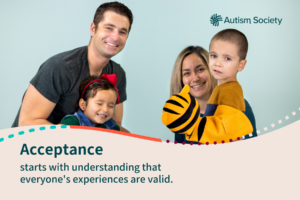 While awareness about autism has developed over time, misconceptions surrounding this common condition still linger. Experts from Summit Academy, an Ohio leader in K-12 special education with an emphasis on autism and ADHD, weigh in with five key, yet relatively unknown, facts about autism.
While awareness about autism has developed over time, misconceptions surrounding this common condition still linger. Experts from Summit Academy, an Ohio leader in K-12 special education with an emphasis on autism and ADHD, weigh in with five key, yet relatively unknown, facts about autism.
1. Autism affects girls, too.
The proverbial cat may finally be out of the bag thanks to social media and advances in the field.
“Social media has exploded with adult women and men seeking help as they have difficulty coping with transitions in their lives, only to find out they have a diagnosis of autism,” says Speech-Language Pathologist Gabi Little, MA, CCC/SLP who works with Summit Academy students through Aaris Therapy Group.
Litte points out that statistics vary from reports that one in every 100 girls receives a diagnosis of autism compared to four in every 100 boys.
“The growing awareness may be in part due to expanding diagnostic criteria, improved access to health care, an increase in the amount and type of experts in the field and supports in the community including programs offered by Summit Academy Schools,” says Little.
Autism can mimic and share features of many other diagnoses, according to Little. She describes how autistic traits may include behaviors of Obsessive-Compulsive Disorder, Generalized Anxiety, Depression and Attention Deficit Disorder, to name a few. An autistic person may also have other diagnoses in addition to autism, she explains.
“Many professionals exist to assist with navigating the beauty of autism spectrum disorder,” says Little, the mother of a son diagnosed at age 9 with autism, et al. “Our journey is special and precious.”
Little says her son’s mantra, ‘I am autistic and proud,’ “is a cry for all the students and their families we serve to be understood, accepted, acknowledged and challenged to uncover their gifts, talents and role in our world.”
2. Many individuals prefer to be referred to as autistic rather than as having autism.
Like many members of the deaf community who prefer being identified as deaf over having a hearing disability, the same holds true in the autistic community, says Summit Academy Behavior Specialist Laura Rickard, M.Ed.,LPC.
Citing “The Very Well Mind,” Rickard explains that describing someone as having autism implies that they have a condition which needs to be cured. Identity-First Language, on the other hand, puts a disability first in describing an individual, e.g., autistic person. The reference asserts that autism is a fundamental part of who they are, not a condition needing a cure.
To underscore the point, Rickard refers to study findings that revealed more than 76 percent of respondents preferred to be referenced as autistic versus as having autism. Only 4 percent had a strong preference for “person with autism” while the remainder had mixed or neutral opinions.
3. Autism is the fastest growing developmental disorder.
Roughly 70 million cases of autism are recognized worldwide, according to Executive Director of Special Education Erica Richley-Duda, MsEd, LPCC-S, CCTP.
In her research related to Pathological Demand Avoidance seen in some autistic individuals, Richley-Duda discovered that some autistic children who exhibit aggression and avoidance (which can be misinterpreted as defiance) often get mislabeled with an emotional disturbance. “The research is fascinating,” she says.
4. Autistic people appreciate humor and sarcasm.
“This is another area where we’ve gained much better insight, thanks to really funny, really bright autistic people,” says Rickard. She points to comedians Hannah Gadsby, Dan Aykroyd and television sit-com “Community” show writer Dan Harmon.
While autistic individuals may face challenges with pragmatic or social language and communication, many enjoy comedy deeply and become skilled at recognizing and delivering humor, according to Rickard.
“My autistic adult niece continues to struggle with perspective-taking and hidden social rules,” Rickard describes, “but on social media she has a wicked, sophisticated sense of humor that is infused with her thoughts and feelings about current events, historical facts, relationships and her love for art and animals.”
5. Autistic people do not lack empathy, emotions or the ability to care.
Great strides in understanding autism have been made in the past three decades, including moving from the perception that autistic people lack empathy or the ability to experience, show and communicate emotion, says Rickard. She uses the example of the character Sheldon Cooper of “Young Sheldon” and “The Big Bang Theory.”
“Many autistic people are the most caring, sensitive people you’ll ever meet,” says Rickard. “The struggle … is frequently related to the autistic person’s difficulty in perspective-taking, that is, seeing a social scenario from the other person’s point of view and misunderstanding the subtle, hidden rules that constantly occur in all social situations.”
With instruction and support, Rickard says, autistic people can begin to identify and name their emotions, understand when, where and how to communicate them, and improve their relationships as well as their sense of well-being.
See Michelle Garcia Winner’s Social Thinking©™ curriculum at www.socialthinking.com.
